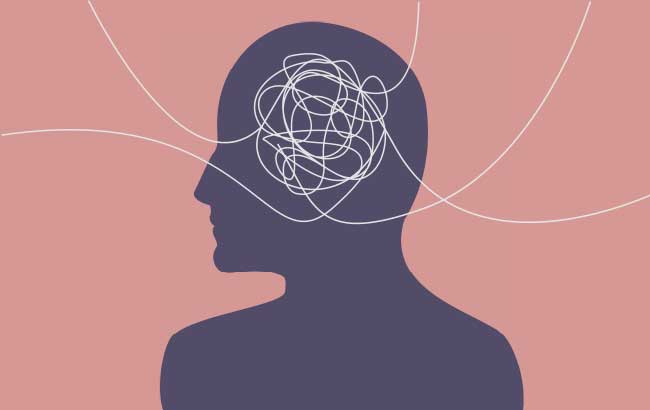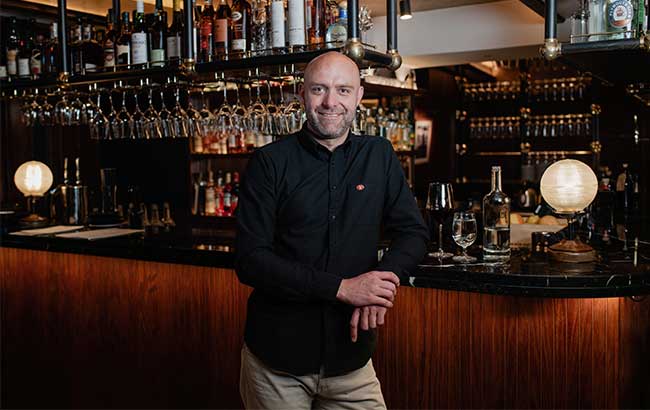How is the spirits industry prioritising mental health?
By Kate MalczewskiThe fallout from the pandemic has been hard on many people working in the spirits industry. Ahead of World Mental Health Day (10 October), Kate Malczewski discovers how the trade is putting wellbeing first.

*This feature was originally published in the October 2021 issue of The Spirits Business magazine.
The impact of Covid‐19 has highlighted and increased the need for mental health support in the spirits trade. Furlough, redundancies and closures left a number of spirits professionals struggling for income. The pressure of financial insecurity, along with the physical health and safety concerns caused by the pandemic and the isolation of lockdowns, has built on potential pre-existing issues such as alcohol overconsumption and work-related stress. Now, as some parts of the world reopen, anxiety around the easing of restrictions has also been added to the mix.
In response, non-profits, businesses and trade bodies have ramped up their efforts to help people in their communities, expanding their resources and broadening their reach.
UK-based industry charity The Drinks Trust, formerly called The Benevolent, works in all segments of the trade, from point of production to point of sale. Within a few months of the UK’s first lockdown, in March 2020, the organisation introduced an array of wellbeing resources to help those in need, including sleep and insomnia treatments, talk therapy services and a mindful drinking course.
Then, in November, the charity extended its helpline to offer 24-hour availability through phone calls, WhatsApp and emails. The Drinks Trust saw “considerable” uptake of each service, said Ross Carter, its chief executive.
“Making ends meet was a significant challenge for many, many people,” he explained. “As a result, we had people taking us up on our offerings. The usage of the helpline went up significantly.”
The charity also stepped up its grant programme, creating the Covid-19 Emergency Relief Fund for those experiencing financial hardship in 2020. It issued a further series of grants, called Another Round, in the first six months of 2021. Carter said: “To put it in perspective, in the year before the pandemic, we gave about 1,000 grants [to drinks industry members in need]. Then, in the year from the start of the pandemic, we did 4,300. So it absolutely shot up.”
This August, the charity teamed up with hospitality non-profit The Burnt Chef Project so the latter’s community could benefit from The Drinks Trust’s 24-hour helpline services.

Carter said The Burnt Chef has a “unique audience” that is more restaurant-focused than its partner. He explained that through the collaboration, The Drinks Trust is able to reach a wider range of industry professionals – anyone “being paid as a result of alcohol sales”.
“It’s really powerful to have these kinds of partnerships, because it ultimately means more people get the service,” he commented, noting that The Drinks Trust is in talks to form similar arrangements with entities operating in different segments of the industry.
For Retail Drinks Australia, a trade body made up of businesses in the retail liquor industry, providing its member companies with enhanced mental health services has been key over the past few months, according to its chief executive, Michael Waters.
The organisation already had a hotline for human resources, mental health and wellbeing concerns, which saw a “steady increase” in calls throughout the pandemic.
Then, in April 2021, Retail Drinks partnered with wellness platform Luemo to offer its members access to “a broad range of free resources to help support awareness and education around workplace wellbeing”.
The move has been particularly important for small, independently owned companies in the trade association. “While larger businesses may have in-house health and wellbeing resources and support such as employer-assistance programmes, the vast majority of small independently owned and operated businesses do not have the resources available to invest in these services,” Waters said.
Helping employees thrive
Individual spirits corporations have also recognised the need for greater mental health services for their employees. As Lani Montoya, Pernod Ricard USA’s senior vice-president, human resources, put it: “We knew we needed to go above and beyond to support our employees, professionally and personally, so that they could thrive as individuals, and show up authentically to do their best work, as well.”
The US branch of the French firm tapped into talk therapy, widening the availability of its employee programme’s personal counselling sessions. It also “embedded” supportive messages and resources in its executive communications with workers.
“Regularly explaining why mental health is important – and taking actions to support it – helps to ensure that it doesn’t fall to the bottom of the list of things that need to get done,” Montoya noted.
Bacardi made personal counselling a priority too, launching its Assist programme, which provides access to a 24-hour hotline run by mental health professionals, plus six free one-on-one sessions each year. It started the website Keeping My Balance as a hub for its mental health resources, and hosted free workouts for employees, as well as sending them care packages, and organising a set of wellness workshops on topics such as sleep.
Meanwhile, Brown-Forman put together a series of sessions called ‘mental health huddles’, which featured senior-level executives sharing their experiences on the topic of wellbeing and topics specifically tailored to employee needs. In addition, the company offered its workers and their families 10 free counselling appointments, either in person or virtually. “This expanded access has allowed our mental health benefit programme to be engaged with at a rate 50% higher than that of other representative companies in 2021,” said Elizabeth Conway, director of brand and communications for Brown-Forman.
Extending the reach
Large spirits companies have a role to play in supporting the mental health of people working in other segments of the trade, too.
In May 2020, for instance, Brown-Forman partnered with non-profit Healthy Hospo to create the Lockdown Lowdown, a series of wellness webinars for bartenders with topics ranging from coping with anxiety to improving nutrition. They hosted sessions across time zones, and were able to serve bar workers in Asia, Australia, Europe, Africa and the Americas.
Camille Vidal, founder of mindful drinking platform La Maison Wellness, believes the resources of spirits brands are crucial to improving the wellbeing of bar workers. “We don’t need any more piss-up parties for bartenders [sponsored by brands], I’m going to be real here,” she said, speaking at UK trade show Imbibe Live in September.
“We need brands to support bartenders and employees and venues in a way that is meaningful. They need support, they need training, they need more moments of connection.
“That’s what the industry really needs. Everyone has a role to play in order to make it work and make it sustainable.”
Vidal was referring specifically to the needs of the on-trade, where long hours, challenging customer service environments and frequent alcohol consumption often take their toll on the mental health of employees, and where brand budgets could go a long way in providing the tools to cope with stress productively. However, her sentiment rings true throughout the spirits industry. By extending mental health resources to where they are most needed, the trade as a whole can become more resilient.
The Drinks Trust’s 24/7 helpline is 0800 915 4610. Those looking for help can also contact helpline@drinkstrust.org.uk or text ‘Hi’ on WhatsApp to 00 353 87 369 0010.
Related news
SB visits… Volcan de mi Tierra
